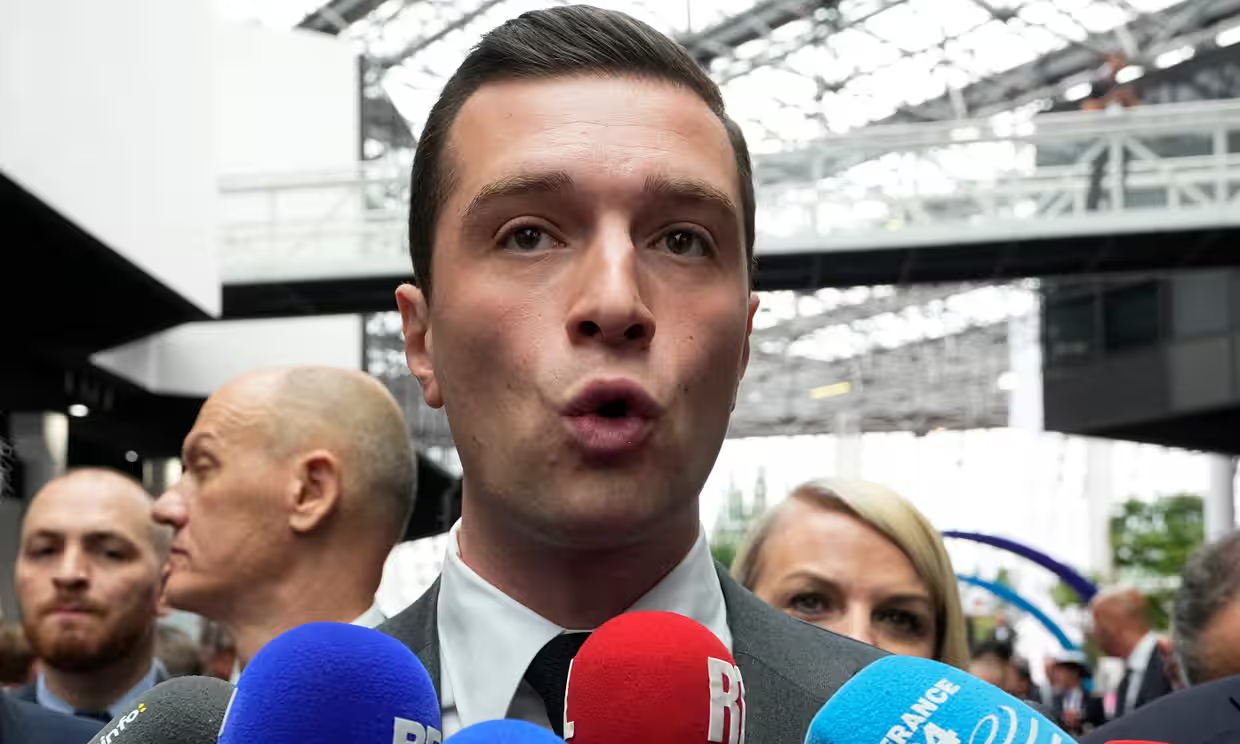Far-right National Rally Strengthening in Final Polls Ahead of Vote
The far-right National Rally (RN) has strengthened in final polls, including one suggesting it could be on course for a historic parliamentary majority, as candidates fought for votes on the last day of campaigning before the first-round ballot in France’s most momentous election for decades.
Two days before Sunday’s ballot, two polls on Friday showed Marine Le Pen’s anti-immigration, France-first party pulling steadily further ahead in a race it has led since President Emmanuel Macron called the shock ballot almost three weeks ago after the defeat of his centrists in the European parliamentary election.
Official campaigning for the first round vote ends at midnight on Friday, with no political activity allowed on Saturday. Campaigning resumes on Monday for a final five days before a decisive second round ballot on 7 July in which the party could take control of France’s government for the first time.
One poll, for Les Echos newspaper, showed RN could win 37% of the national vote, two points more than a week ago, while another, for BFM TV, estimated the far-right party was on course for 260-295 seats – potentially giving it an outright majority.
RN, which has pledged to boost spending power, slash immigration and restore law and order, “cannot only envisage a relative majority, but we cannot exclude – far from it – an absolute majority” of 289 deputies, Brice Teinturier, the deputy director of a third polling agency, Ipsos, told Agence France-Presse.
The New Popular Front (NFP), a broad but fractious leftwing alliance dominated by the Unbowed France (LFI) of the veteran radical left firebrand Jean-Luc Mélenchon, was on 28%, and Macron’s centrist bloc, known as Together, on 20%.
Accurate seat forecasts are difficult because the outcome depends on second-round results in France’s 577 constituencies, many of which could be three-way races and affected by tactical alliances and withdrawals aimed at blocking the far right.
“Of course I want to avoid the extremes, especially the far right, being able to win,” the prime minister, Gabriel Attal, said on Friday. Macron, who has called both the left and far right extreme, also suggested at an EU summit on Thursday that prospective Together MPs would back moderate left candidates against far-right ones.
The president also criticised far-right “arrogance”, saying it had “already allocated all the government jobs” and questioned his constitutional role as military commander-in-chief. “Who are they to explain what the constitution should say?” he asked.
A hung parliament, with Macron’s forces squeezed between two hostile bigger blocs, would lead to near-certain deadlock, while an RN majority would deliver a fraught cohabitation with a party radically opposed to the president on almost everything.
Le Pen hinted at the kind of rows that could arise on Friday, saying it was “the prime minister’s prerogative, not the president’s” to name France’s next European commissioner – currently the internal markets commissioner, Thierry Breton.
RN’s youthful president, 28-year-old Jordan Bardella, has said he will not take up the post of prime minister unless his party, which has toned down some of its anti-EU positions and pledged fiscal responsibility, wins an absolute majority.
But the party remains vague about the cost of its promises, which include cutting VAT on all energy and, longer term, abolishing Macron’s pension reform to return the state pension age to between 60 and 62 and exempting all under-30s from income tax.
(Source: BBC)













